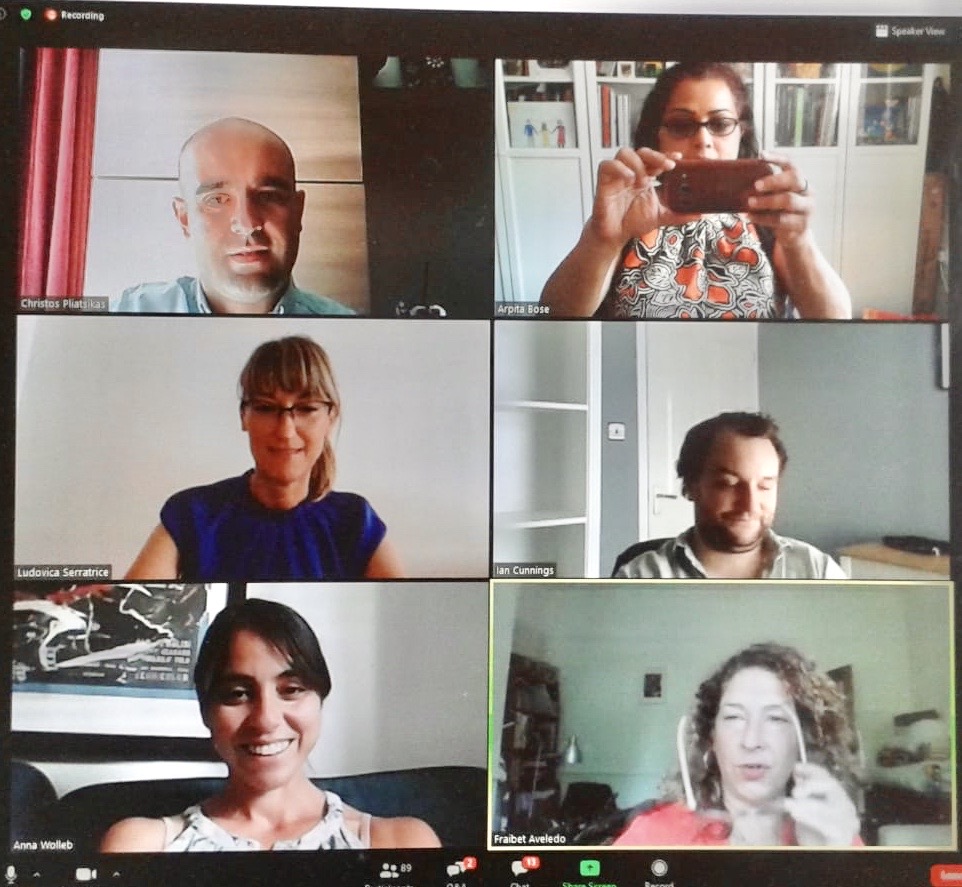The ongoing COVID-19 pandemic has affected all aspects of our personal and professional lives in ways that we could not even have imagined just a few months ago. If someone had told me last year that we’d be hosting an online conference with 614 delegates from 64 different countries from Martinique to Nepal, I would have had a hard time believing them. And yet this is what we did at the Centre for Literacy and Multilingualism over the course of three days in June.

Last September we took over as the organising committee for the 2020 Conference on Multilingualism – COM – a relatively small annual conference that brings together academics working on multilingualism across several disciplines from sociolinguistics to neuroscience. The plan was to host COM2020 on the University of Reading campus, with about 100 delegates based on attendance in previous years.
And then COVID-19 happened. When it became clear that the situation was serious, and that our original plan was no longer viable, we had to decide whether to cancel, postpone, or move online. We bit the bullet and decided to host it online. We had worked hard to prepare the conference; we already had a finalised programme and we did not want to let down our presenters and our delegates. At that stage we decided to cancel the registration fee, we persuaded the University to let us purchase a Zoom webinar licence, and we started re-advertising the free online conference on the usual academic lists and on Twitter. In less than a month we had more than 700 registrations, and by the time we closed booking we had 965 registered delegates (just hitting the limit of our licence).
We had planned five thematic sessions (education, migration, language & literacy, health, neuroscience) and hosting those over the three days was a full-time job for the six members of the organising committee, with one host looking after the technical side of things and one chair managing speakers’ introduction and moderating the Q&A sessions. We ended the proceedings with a roundtable on visions for the future for bilingualism research with three high-profile invited speakers and a longer Q&A session.
To our great relief there were no major technical fails, and we were overwhelmed by the positive response of our delegates, two thirds of whom had not attended an online conference before. Going online massively increased the reach of the conference – and not just in geographical terms. Approximately 20% of the audience were not the typical academic delegates – they were teachers, speech and language therapists, language consultants, translators and interpreters. And on the academic side, we were pleased that a third of our participants were early career researchers.
We all learned a lot from this experience and going online was the right thing to do. There are many things we would do differently if we had to organise another online conference, starting from investing in some good conference management software. We used different platforms for the abstract submission, for the conference programme, for the poster sessions, and for the archiving of presentations after the conference. A better integration of the different phases of the conference would make the authors’ and the delegates’ experience more user-friendly. We had little control over the poster sessions as we left it to presenters to arrange their own individual breakout sessions; from the post-conference feedback this is an area in which access and interactivity could be improved.
Some aspects of the interaction were probably better than at a face-to-face conference. For example, the fact that audience members could type questions in to the Q&A channel allowed them to start the discussion during the talk – rather than just at the end – and it often generated dialogue among the delegates who commented and replied to questions in real time.
Going online was not our first choice, but it made the conference more inclusive and significantly extended its global reach, so it is a choice we are glad we were forced to make. The challenge in future will be to make the most of the digital tool we have, not to reproduce the face-to-face experience, but to create a new way of doing things together as a global community of researchers and practitioners.
Ludovica Serratrice is Director of the Centre for Literacy and Multilingualism at the University of Reading. The other members of the local organising committee were Fraibet Aveledo, Arpita Bose, Ian Cunnings, Christos Pliatsikas and Anna Wolleb.
COM2021 will be hosted at the University of Konstanz – we look forward to seeing you there.
